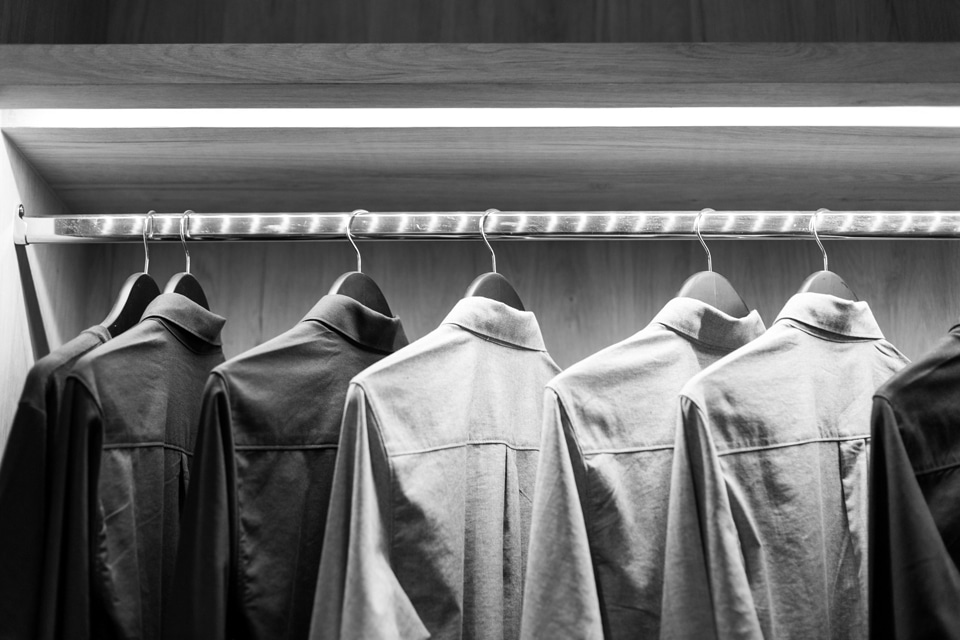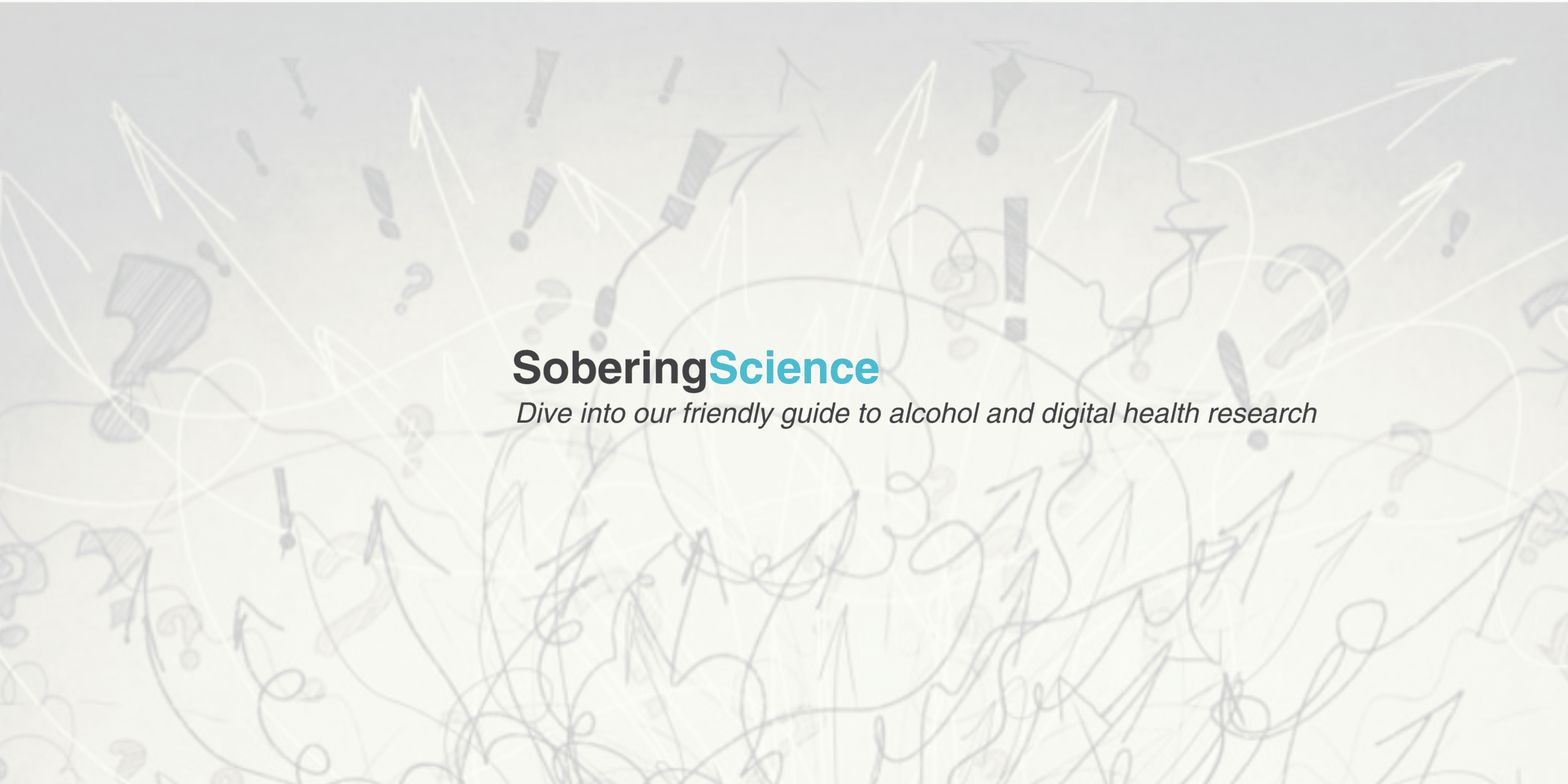
Perfectionism – how does this affect alcohol use?
For many people who sign up to Daybreak, there can be a very clear process of change that might have started even before they post on the feed or start a coaching conversation. Most of the time this has resulted from some kind of realisation or decision that alcohol is starting to take away more than it is giving – it is becoming a ‘cost’ in a person’s life, rather than something beneficial.
For some of our members, this change process can be relatively quick and straightforward. For others, it can take months or even years. One common issue that pops up for a lot of members is that of perfectionism – high personal standards that, while positive in some ways, can also act as huge barriers towards sustainable change.
This is particularly tricky with alcohol use, as many perfectionists will also be using alcohol problematically – probably because it dampens down anxiety and stress, which are commonly associated with perfectionism. For many people the task of approaching their alcohol use and relationship with alcohol can actually feed into some of that perfectionist thinking – ‘I have to fix this, I need to be 100% perfect with my relationship with alcohol, and if I slip up it means I’ve failed and might as well go all out while I have the chance.’
This kind of thinking can be hugely difficult to manage since, as we know, the process of change does involve some occasional setbacks, moments of failure and disappointment. What matters is the progress over time, and this can take weeks or months – but for a person with perfectionist tendencies this can be hugely challenging. Often we can see ‘all-or-nothing thinking’, where a person will be going very well for a few weeks, but then have a slip-up where they drink more than they had intended to, or slip back slightly in terms of their health and wellbeing goals (e.g. missing the gym, pigging-out on junk food). The feelings of failure and shame can be so overwhelming that what might have just been a lapse or slow-down in progress can become a fully blown relapse, complete with low mood and feelings of worthlessness and shame.
Realistically, we know that life happens – we get sick, we get stressed or others let us down – and there are some times that we just can’t be our best selves. What matters is our progress over the weeks and months, rather than hours or days, but sometimes this can be hard to understand in the moment, particularly if you are a bit of a perfectionist. For some people, the need to be perfect – or never make mistakes – can be tied-up with feeling worthy of love and acknowledgement, so those moments of imperfection can bring up huge feelings of vulnerability and fear.
So what is the solution to this issue? For some people it can involve understanding where these tendencies come from (hint: often these kinds of things are learned in childhood, from parents who wanted the very best for their kids, or were perfectionists themselves), and understanding that while having high standards is great, if we have a bad day it does not mean we are failures or worthless – it simply means we are human, and we are trying the best we can.
Self-Compassion, a relatively new approach, encourages us to shift our self-talk away from criticism and self-blame, towards how we might talk to a friend or loved one, in a way that is practical and understanding, realistic and supportive. This is what we need in those moments of imperfection – not criticism or punitiveness, but rather some gentle support and curiosity about what went wrong, and what we might do differently next time. This allows us to see these ‘failures’ more as learning experiences, and we are then able to hold ourselves accountable for the next time this happens.
Strangely enough, many people who have tackled perfectionism using Self-Compassion have found that rather than what they feared – that their performance or progress would slow if they were a bit easier on themselves – they actually became more productive, more successful, and happier in general. Backing ourselves rather than blaming ourselves gives us a lot of extra space to learn from our mistakes, and plan how we might do things differently next time. Rather than running away from ‘failure’, you might view it more as moving towards success or change, and anticipate that there are going to be some bumps in the road – some that are in your control, others that are not.
If you feel that this might be related to your own experiences, it might be helpful to discuss this with a health coach at Daybreak. We can provide you with some advice and support about how to best manage high standards, self-doubt and perfectionism, and make ongoing and sustainable progress with your relationship with alcohol.










Totally relate to this 58 days sober and starting to question the why was I that bad but I can’t seem to make peace with my decision to stop for good eating more sweets than normal exercising about 4 days a week but feel bad about eating junk
I totally relate to that “I can’t seem to make peace with my decision to stop for good”.
Very enlightening.. I resonate with this perfectionism syndrome after reading this article.
Food for thought!
Thankyou
This is so true, and I recognise my own belonging in this subset of people. I think with us that “counting sober days” as an encouragement technique is actually unhelpful, because a slip up that means the counter needs resetting becomes unbearable. I have found that I am better off not identifying with a day zero.
Brilliant! I have been working with the internal family system model where the Self is curious and compassionate towards all the other parts within me – very helpful model and even the most anxious ‘parts’ respond to a bit of love and compassion.
I think that there is also a link with intelligence/inherent ambition and the ‘impostor syndrome’. This is opposite to the Dunning-Kruger effect (where people are a bit thick and consequently lack the self-awareness to realise they’re thick, and wrongly assume they’re smart). So people who are reasonably smart, over-analyse their performance and this creates a lot of self doubt. Lots of very smart, successful people I know appear confident to others but really suffer from excessive self-criticism. And then you feel like you’re struggling. Then a few glasses of red make you feel better…until the next day when you feel worse. I often feel a bit sad/depressed after too much wine and then the spiral kicks in.
This sounds like me! I am a total perfectionist, if i slip up and eat a few more extra biscuits (for example) than planned i will think ‘feck it’ and go on a complete binge! This used to happen with alcohol- i would have a few more than planned and then be the last one standing (swaying) in the clubs at 5am , until i started on baclofen which has totally changed my life. It initally dampened the cravings and made me indifferent to alcohol . I have now stopped taking it but still am able to drink in moderation as it has got me out of the habit of drinking heavily .
With regards to imposter syndrome, that is me totally-i am a doctor but have always felt that i got into medical school, passed exams etc as a complete fluke!
This sums me up “perfectly” if I even have one sip of beer I see it as breaking a winning streak and revert to going “all out”. Self compassion is definitely a challenge especially when you are internally competitive. Great article although easier said than done. Cheers Guys.
Absolutely me with my back story.
Can I join Daybreak? I live in Wales, UK?
Yes absolutely! There is a 21 day free trial to try it on 🙂
You can find more information in the link below:
https://hellosundaymorning.org/daybreak-int/#aus_free
This is me to a tee. I have been aware of this trait for some time and I have struggled. I find it hard to just relax and just be mean especially not worry about how others will judge me if I don’t perform
Love this! Thank you a very helpful reminder
That’s me. Excellent blog/article.
I am definitely a perfectionist…for myself but not others. Some coaching may help on my journey. Thanks
Thank-you for suggesting self-compassion as an alternative to self-criticism. I am a child of perfectionist parents and have a perfectionist ethic that gets me into trouble, especially procrastination, tardiness, and all-nighters. The latter behavior often times features a bottle of Chianti Classico.
I’m 64 and totally relate to this articale
What a fantastic article. I think the quote about alcohol taking away more than it is giving is very simple, clever and oh so true. I also think it is very relatable, certainly to my experience. I was a very social drinker …2-3 daily and started to ease because I fell in love with triathlon. Then had a virus and lost all interest in alcohol. My wife and I took the kids for a picnic dinner in a park around the corner and left the craft beers and rose at home. We had a great time (as always), but didnt need a break from frisbee or kicking the footy to drink! It made me wonder how much time I had lost (or gain) in playing with the kids. Just brilliant
Thankyou so much for writing this . It really resonates with me. I had perfectionist tendencies all my life and nothing was ever good enough and I kept setting myself up for failure. I numbed out with drinking because I was feeling insecure all the time . Drinking gave me a rest from the negative thoughts …. until the drinking became a problem and the negative thoughts of self loathing and shame arrived . I’ve quit many times . Each time I quit I noticed I felt calmer , better able to manage problems that would arise and more accepting of who I am. Why did I always go back to drinking again when life was so much easier sober ??? Eventually I came to fully understand that alcohol is addictive and I was a victim of that addiction . I’m not a down and out alcoholic drinker . I’ve never done anything major to be ashamed of but my life was being hijacked by the constant battle of tolerated hangovers. I am now sober again . It’s Day 20 and my thought process is different this time . I really want to live my life free from drinking alcohol. Apart from the first 3 days , i’m doing it so much easier this time around. My previous attempts I liken to training . This is me , the real me . The perfect imperfect me. Once again , thank you for the insight this article has shown.
“Self-Compassion” now there is a concept that I’d never considered before. Continuous self- improvement is an exhausting exercise. I might just cut myself some slack and enjoy myself for a change.
I totally get the “problems with perfectionism” model. My antidote, discovered over twenty years ago, was to aim to be the “imperfect perfectionist” or the “perfect in-perfectionist” (which ever you prefer). It is based on the assumption that God herself would never be so stupid as to want to be a perfectionist and thereby suffer the terribly wasteful angst associated with being one: the proof is that She created us humans.
Very useful blog
Great article, thank you!! For me.. I just don’t know how to believe me anymore. I seem to be able to keep promises to myself. I’ve tried so many times to cut back, stop drinking… then I slip up.. and when I try again, I don’t believe I’ll succeed.. it’s a vicious circle..